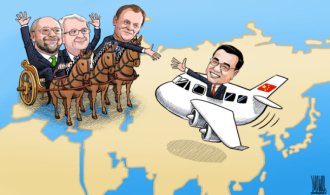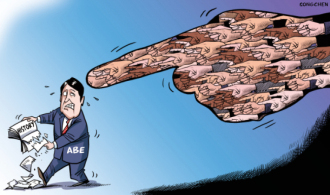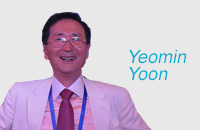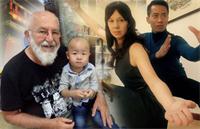Michelle touches hearts across ocean
By Ye Xiaowen (China Daily) Updated: 2012-09-11 08:08
The Chinese rarely show any interest in how citizens of the United States elect their president. It is our belief that this choice is solely that of the American people.
This year, though, we Chinese, much like many people living in the US, were moved by the speech that First Lady Michelle Obama delivered at the Democratic National Convention on Sept 4. Most of all, we liked it because it told moving stories about family and the country's struggles.
These sorts of household tales resonate well with the masses.
In talking of the student loans she and Barack Obama had taken out when they were young, the first lady said: "We were so young, so in love, and so in debt," words that no doubt brought her immediately closer to many young US citizens who are in similar circumstances.
What we perhaps appreciated most about her remarks was that they revealed a deep "national feeling".
We also applauded Michelle Obama for saying that "Barack knows the American dream because he's lived it ... and he wants everyone in this country to have that same opportunity, no matter who we are, or where we're from, or what we look like, or who we love", and that "he believes that when you've worked hard, and done well, and walked through that doorway of opportunity you do not slam it shut behind you ... you reach back, and you give other folks the same chances that helped you succeed".
We were deeply touched by Michelle Obama's portrayal of her husband's strong attachment to family life, especially when she said the US president is still "the same man who, when our girls were first born, would anxiously check their cribs every few minutes to ensure they were still breathing, proudly showing them off to everyone we knew".
Further inspiration came from this remark: "When the challenges we face start to seem overwhelming - or even impossible - let us never forget that doing the impossible is the history of this nation ... it's who we are as Americans ... it's how this country was built. And if our parents and grandparents could toil and struggle for us ... if they could raise beams of steel to the sky, send a man to the moon and connect the world with the touch of a button ... then surely we can keep on sacrificing and building for our own kids and grandkids".
We also applaud her for saying, "We can give everyone in this country a fair chance at that great American Dream. Because in the end, more than anything else, that is the story of this country - the story of unwavering hope grounded in unyielding struggle"; for saying, "that is what has made my story, and Barack's story, and so many other American stories possible"; for saying, "I say all of this tonight not just as First Lady...and not just as a wife"; for saying, "you see, at the end of the day, my most important title is still 'mom-in-chief'", and for saying, "my daughters are still the heart of my heart and the center of my world".
Truly, Michelle Obama's speech has deeply touched many Chinese and aroused their "national feelings".
It is this very same sort of patriotic emotion that has helped the old Chinese nation overcome many setbacks and vicissitudes and given it the vitality needed to develop in modern times.
The Chinese have long cherished the belief that the orderly handling of family affairs is a precondition to the orderly handling of state affairs. Many verses that we have known since we were young display our belief in the importance of sacrificing personal good to the greater, national good.
A popular modern Chinese poem goes: "The reason we always have tears in our eyes is that we hold such a deep love for the land under our feet."
Despite being very different in many ways, China and the US share one thing in common - the belief that families are the basic building blocks of a country and that the love of one's own family is inseparable from the love of one's country.
Such strong heart-felt sentiments for "the family and the nation", which turn out to be identical on both sides of the Pacific Ocean, will allow us to appreciate each others' beautiful lives and achieve more in common.
The author is the first vice-president of the Beijing-based Central Institute of Socialism.
(China Daily 09/11/2012 page8)











